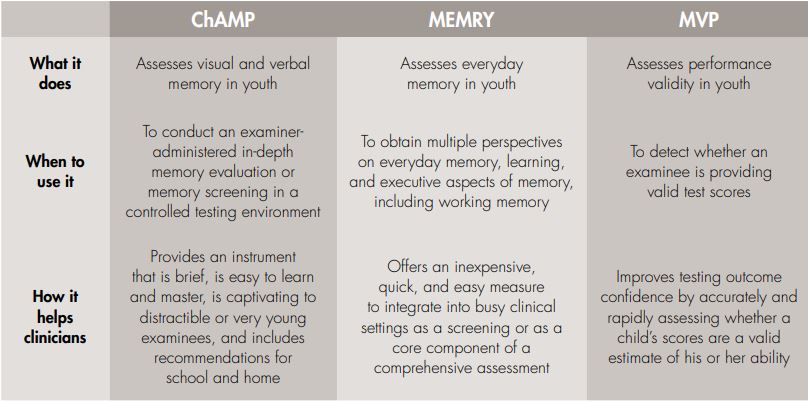Register now and start:
- Accessing PAR Training
- Shopping PAR products & tools
- Using online assessments with PARiConnect
The MEMRY is the first and only nationally standardized rating scale specifically designed to measure everyday memory in children, adolescents, and young adults. It measures daily memory, learning, and executive aspects of memory, including working memory. Allows clinicians to differentiate between problems caused by memory failures versus failures due to problems with working memory and attention, a common referral question.
Everyday memory is facilitated by semantic associations, environmental cues, and emotional saliency, and occurs alongside normal distractions. This is unlike the highly controlled testing environment presented in most objective memory tests, making the MEMRY more true to real-life situations.
When should I use the MEMRY™, ChAMP™, and the MVP?

Each component provides additional information about a child’s memory abilities, and conorming means that all three were standardized on the same large, representative sample. The ChAMP™ is a performance-based memory test with an embedded performance validity indicator and the MVP is a standalone performance validity test. The three forms of the MEMRY allow the student, parent, and teacher to provide their subjective ratings of the child’s real-world memory performance, and it also includes symptom validity scales. Together, these contribute to building a best-practice battery that includes at least two validity metrics. Either the ChAMP™ or MEMRY could be used in screening for memory problems, and the three together form a valuable segment of a comprehensive neuropsychological or psychoeducational evaluation.